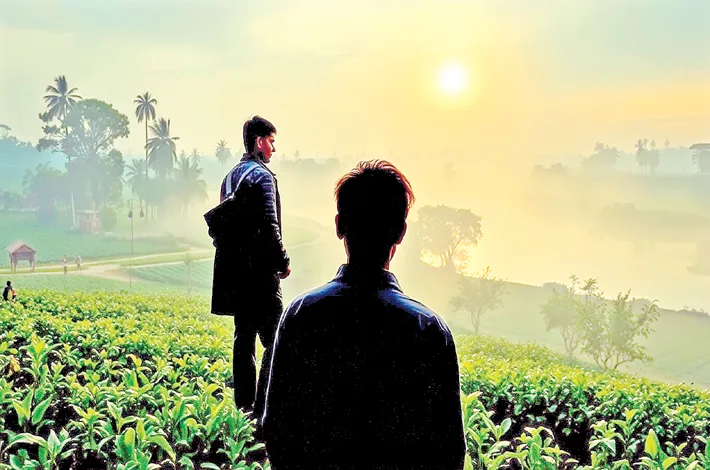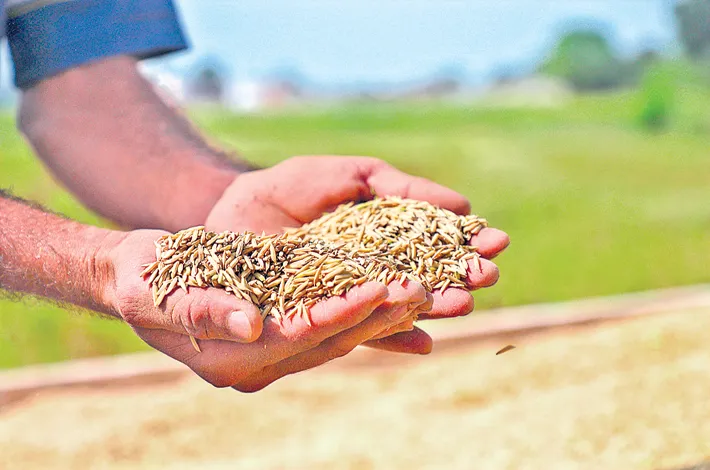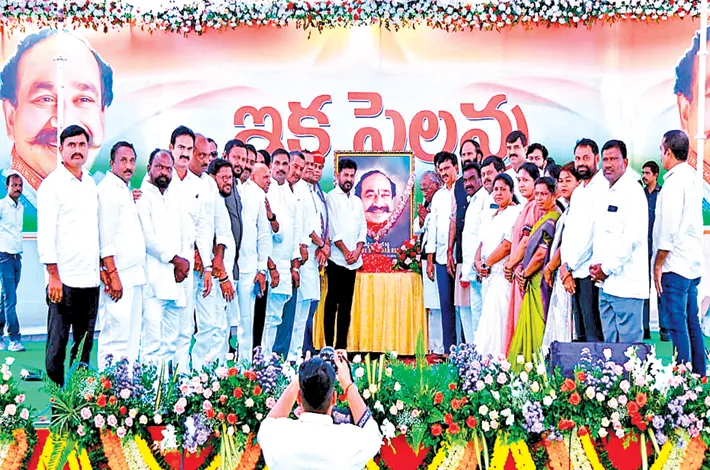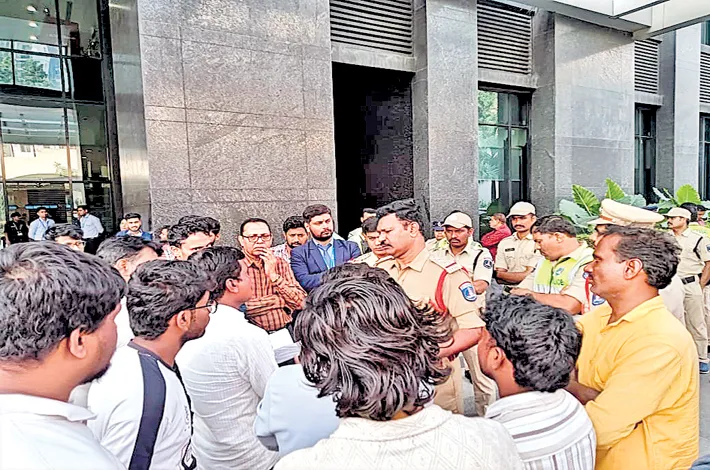Poachers of Assam
27-09-2025 12:00:00 AM

The mist clung to the Brahmaputra like a shroud, veiling Guwahati's chaotic streets in a perpetual haze. Inspector Arjun Das wiped the condensation from his scooter’s windshield, cursing the monsoon that turned Assam’s lifeline into a brooding serpent. It was past midnight when the call came: a body in the sprawling tea estates of Jorhat, 300 kilometers east. Another rich sahib down, they said. Arjun, a wiry man in his forties with a scar snaking across his cheek from a Rhino poacher’s blade, revved the engine. In Assam, death always smelled of wet earth and betrayal.
By dawn, he arrived at the Evergreen Bungalow, a colonial relic perched on the edge of the Doomdooma tea gardens. The air hummed with cicadas and the distant rumble of the river. The victim, Reginald "Reggie" Hargrove, lay sprawled on the veranda, throat slit clean as a cane cutter’s stroke. Blood pooled like spilled chai, staining the teak floorboards. Hargrove, a British expat who’d inherited the estate from his Raj-era grandfather, clutched a crumpled envelope in his fist—yellowed paper, scrawled in faded ink: The ghosts return. Pay or perish.
Arjun knelt, gloved hands probing the wound. No struggle; the kill was intimate, precise. A ritual? He scanned the horizon: endless rows of emerald tea bushes, workers’ thatched huts dotting the slopes like forgotten offerings to the harvest gods. Hargrove’s wife, Elena, a sharp-eyed Assamese beauty half his age, hovered in the doorway, her silk mekhela chador damp with rain. “He was arguing with someone last night,” she murmured, voice like rustling leaves. “That rival planter, Vikram Saikia. Over water rights. The drought’s killing the yields.”
Saikia’s name rang bells. A local Bihu dancer turned tea baron, he’d been feuding with Hargrove for years—accusations of sabotaged irrigation canals and stolen saplings. Arjun noted the tremor in Elena’s fingers as she lit a beedi. Motive? Plenty. But her alibi was ironclad: she’d been at a late-night Jagannath puja in the village temple, witnessed by a dozen devotees.
The estate manager, old Biren, shuffled out next, his face etched like ancient Ahom scripts. “Sahib was paranoid, Inspector. Letters like that one came weekly. Blackmail, he said—from poachers. Kaziranga’s rhinos fetch a fortune on the black market, and Reggie refused to look the other way.” Biren’s eyes darted to the treeline, where shadows danced unnaturally. Arjun followed his gaze. A flicker—eyes? No, just a langur swinging through the banyan.
By noon, Arjun’s team had cordoned the bungalow. He interviewed the workers under a tamarind tree, their faces smeared with mud from the morning pluck. One girl, barely sixteen, whispered about a ghost: the Bhoot of the estates, a spectral figure in white that haunted the processing sheds at night. Superstition, Arjun scoffed inwardly, but Assam’s folklore had teeth. His own grandmother swore by tales of river spirits dragging the unwary to watery graves.
The envelope nagged at him. He pocketed it and drove to Saikia’s rival plantation, a mirror of green hell across the swollen stream. Vikram Saikia greeted him with oily charm, a gold chain glinting against his kurta. “Reggie was a fool, Inspector. Clinging to old ways while I modernize. But murder? I was sealing a deal in Dibrugarh—rail receipts prove it.” Saikia poured darjeeling from a samovar, steam curling like accusations. Arjun sipped, probing: “And the letters? Ghosts demanding payment?”
Saikia laughed, a bark that echoed off the hills. “Ghosts? That’s Reggie’s guilt talking. He dabbled in smuggling—ivory tusks funneled through the tea crates to Kolkata. I warned him the syndicates don’t forgive debts.”
Arjun’s pulse quickened. Smuggling. It fit: Hargrove’s ledgers, glimpsed earlier, showed discrepancies—phantom exports worth lakhs. But who wielded the knife? Back at Evergreen, he pored over the body in the makeshift morgue, a shed reeking of formalin and frangipani. The wound’s angle suggested a right-handed killer, height around five-foot-eight. Elena was too tall; Saikia, a giant at six-two. Biren?
Dusk fell like a guillotine, painting the Brahmaputra crimson. Arjun slipped into the processing factory, its iron vats silent sentinels. Footsteps—soft, padding. He drew his service revolver, heart hammering. A figure emerged from the steam: the girl from the fields, eyes wide as a startled deer. “Inspector-ji, it’s the Bhoot! I saw it drag something to the river!”
They crept to the bank, reeds whispering secrets. There, half-submerged, bobbed a burlap sack. Arjun hauled it in, water sluicing off like tears. Inside: a rhino horn, jagged and fresh, wrapped in Hargrove’s monogrammed scarf. And a note, identical script: First payment returned. The rest in blood.
Elena. It clicked then—the puja alibi too perfect, her tremor not fear but calculation. Arjun raced back, the scooter’s headlight carving through fog. She was in the bungalow, rifling Hargrove’s desk, a khukuri dagger—Assam’s curved blade—tucked in her waistband.
“You,” he growled, bursting in. “The letters were yours. Forged to scare him into paying your syndicate cut. But he found the horn stash, threatened to turn you in.”
Elena spun, eyes flashing like storm-lit lightning. “He deserved it, Arjun-ji. Married me for my father’s land, then bled the estate dry with his vices. The poachers? His partners. I just... balanced the scales.” She lunged, blade whistling.
Arjun sidestepped, years of kalaripayattu drills kicking in. He twisted her wrist; the khukuri clattered free. She crumpled, sobbing, as cuffs snapped on. “The river takes all thieves,” she hissed. “Even you.”
Outside, Biren waited in the shadows, confession spilling like monsoon rain. He’d been her lookout, lured by promises of a cut. Saikia? Clean, just a loudmouth rival. As dawn broke, Arjun watched the Brahmaputra swallow the mist, the sack’s contents destined for the evidence lockup. Another ghost laid to rest—but in Assam, the whispers never truly silenced. The tea leaves rustled on, hiding sins in their verdant folds.








